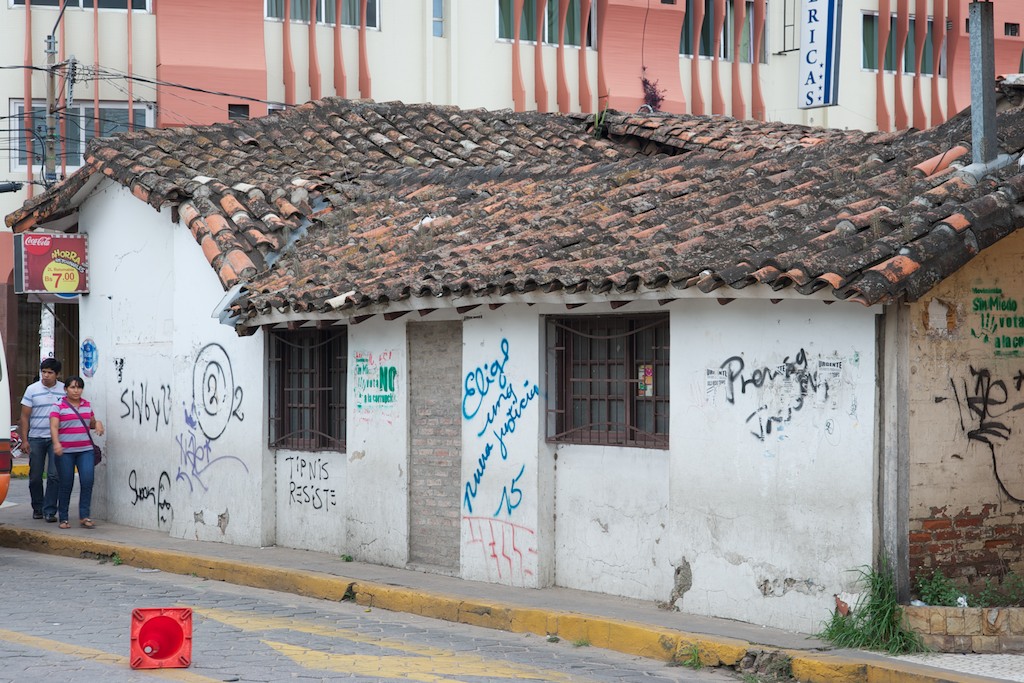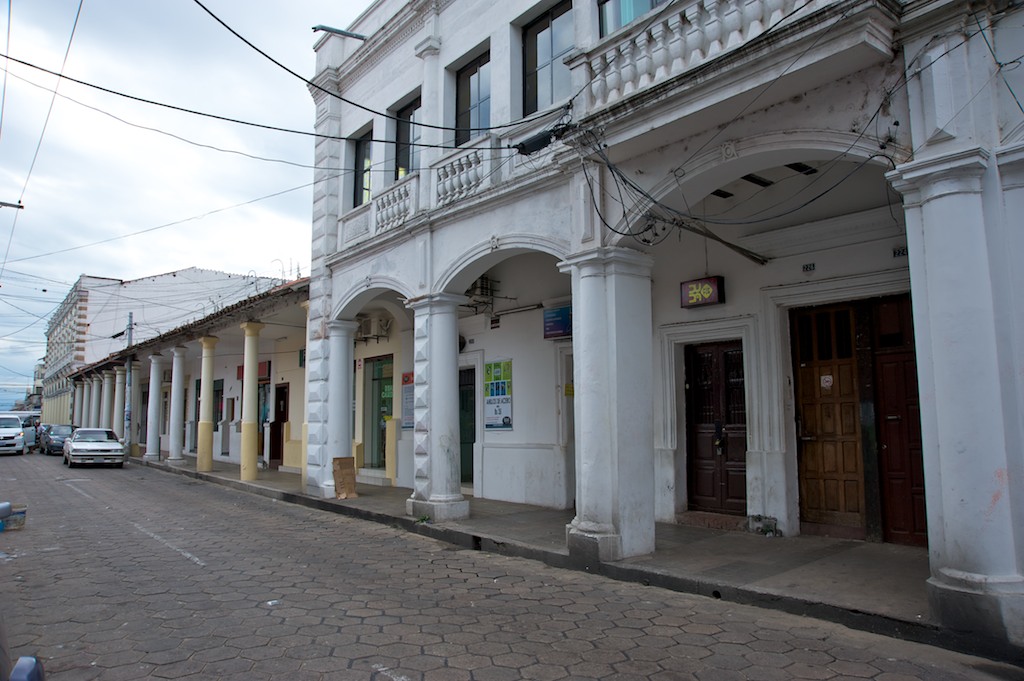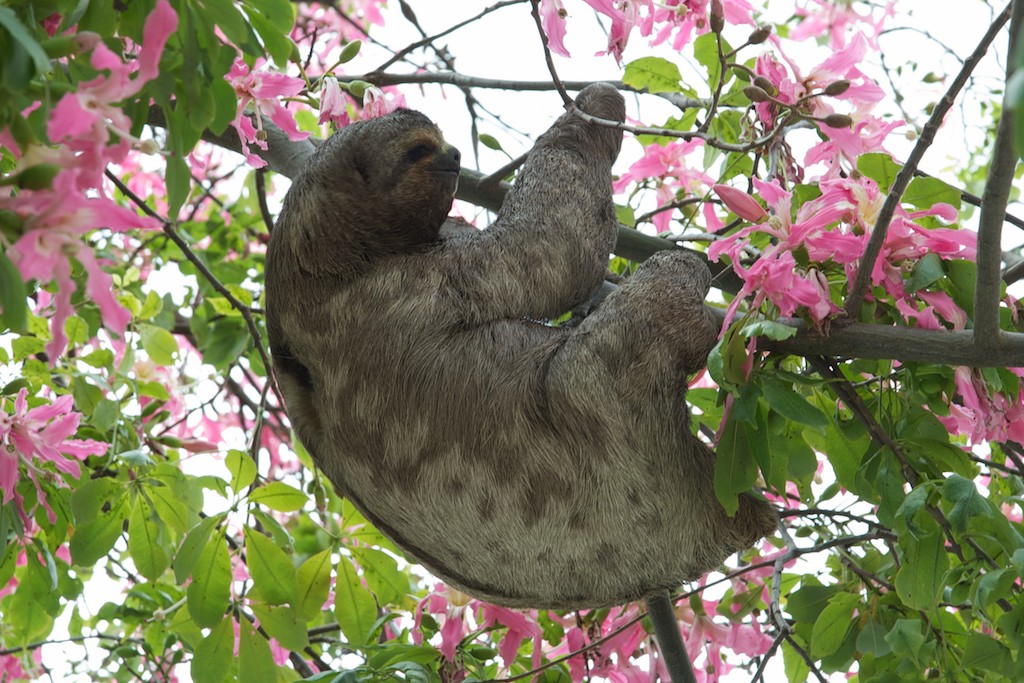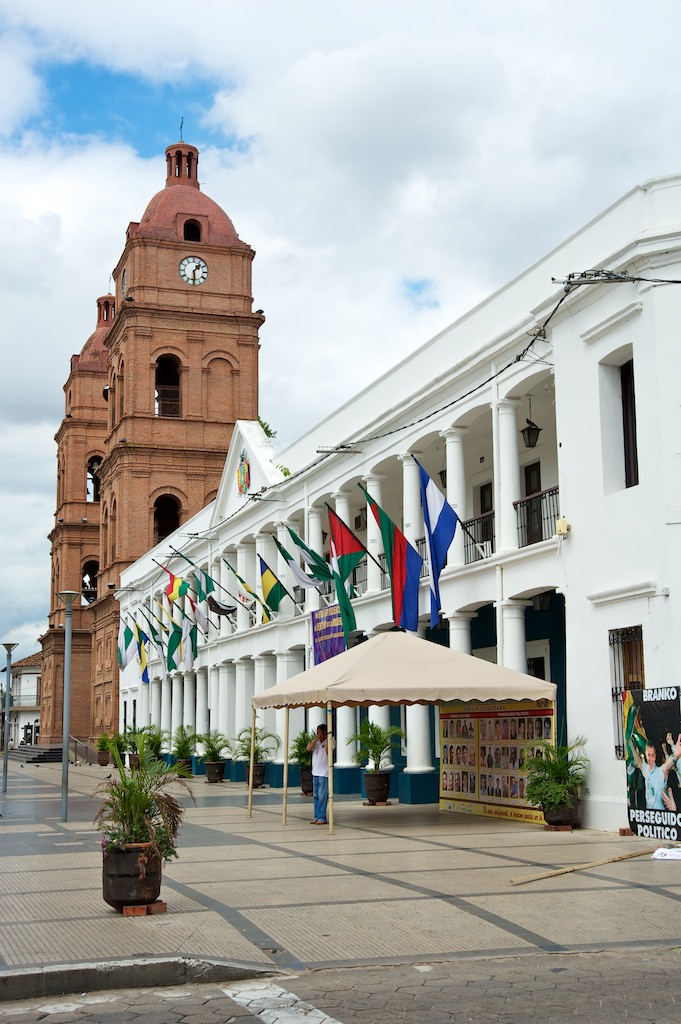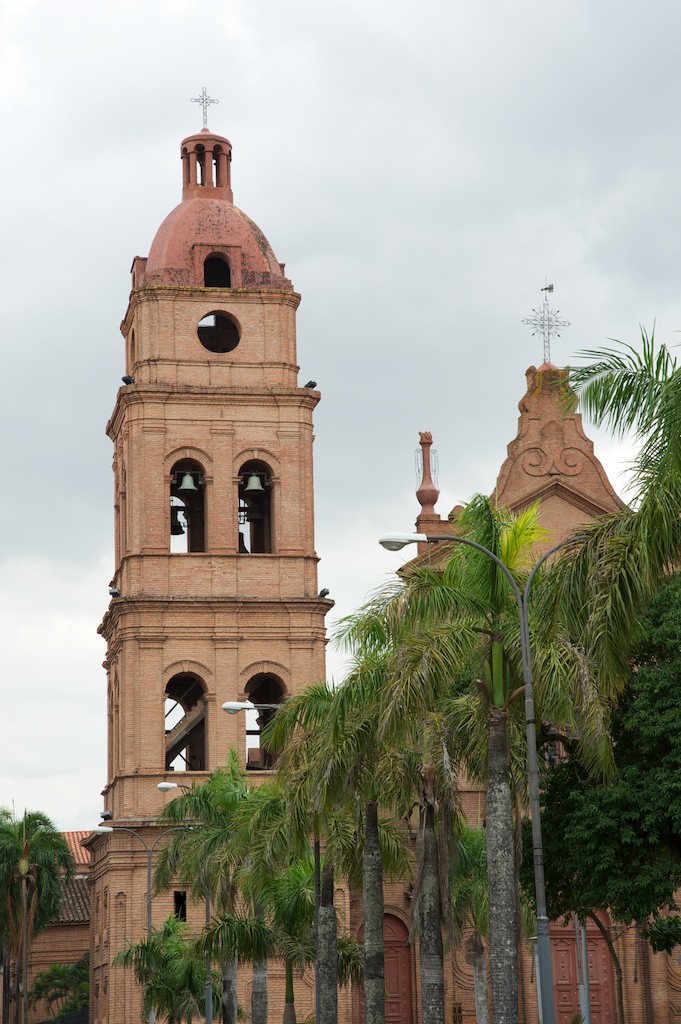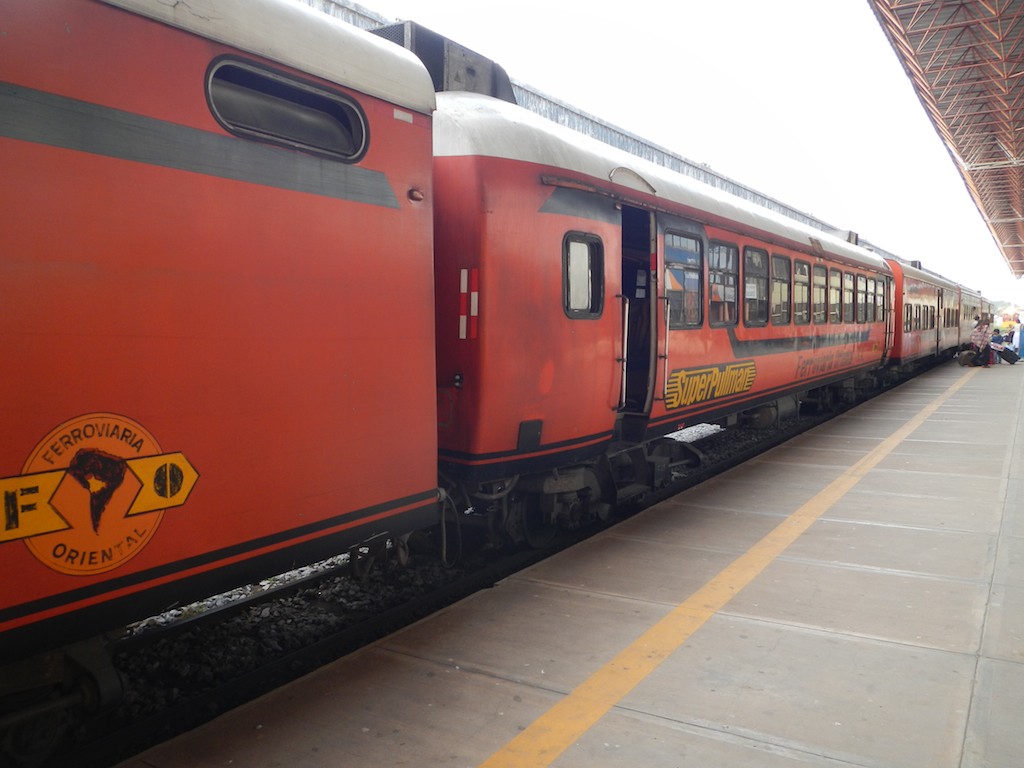After returning from our early morning walk we were advised that we had to leave immediately as the border closes at 1:00 - the rules had changed. We bundled everyone & all our luggage into the truck & headed off. A quick change to a van at the park entrance & a couple of hours later we were at the border. We made it through the Brazilian side with time to spare but when we arrived at the Bolivian side there was no one to be seen so we simply walked through & found taxis to the train station to catch our overnight train to Santa Cruz. All good so far.
Bolivian trains run on a narrow gauge and are old and rattled for the 16 hours of travel. Despite this, we managed to get a reasonable amount of sleep and arrived in Santa Cruz at around 8.00 am and got taxis to a hotel in the centre of the city. A hot shower and a hearty breakfast made for a pleasant start to the day.
Santa Cruz is described in our travel guide-book as ‘not a popular tourist destination’ and it’s a fair description. It’s the second biggest city in Bolivia and is the centre of industrial, agricultural and natural gas development. The Santa Cruz province is the productive region of Bolivia whereas La Paz in the highlands is the centre for administration and commerce. The Santa Cruz province wishes to break away from Bolivia and become a separate country. This is unlikely under the present government of Evo Morales!
We spent the morning catching up on washing, emails (the wi-fi connection was intermittent) and planning ahead. We then ventured into the city which is overcrowded with people and traffic as well as quite dirty. We wandered around and eventually found the city square where there was a tree covered with pink flowers and in the tree were two sloths; just hanging about and unaffected by the crowds in the square.
The signs of poverty are apparent and many of the buildings in Santa Cruz are in need of repair. The locals are apparently optimistic as the discovery of oil and natural gas near the border with Paraguay means a sudden influx of money and potential for economic progress.
At night we had a farewell meal and drinks as the group is to split into 2 tomorrow. We said farewell to David, Glenis, Claire and our guide Marianne.
In the morning we had breakfast and caught taxis to the airport and waited for 3 hours for our flight to Sucre which was delayed by bad weather somewhere. The plane was an old BAe 146 run by the internal Bolivian company called Tam. The plane had very obvious signs of corrosion in the region where the wings attach to the fuselage!

